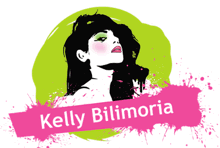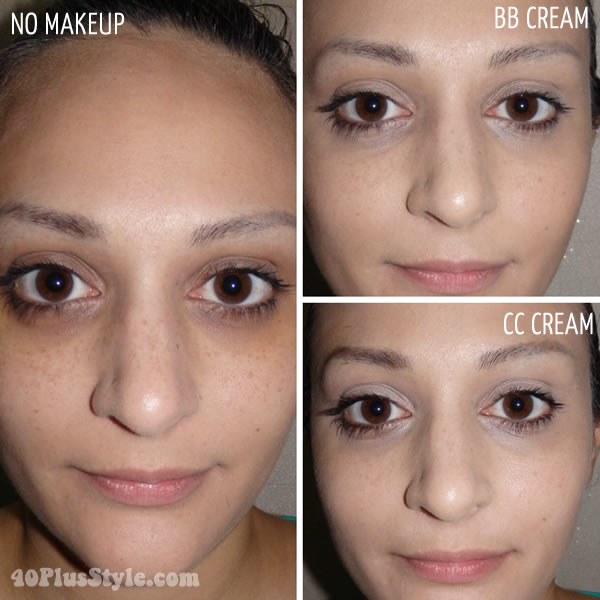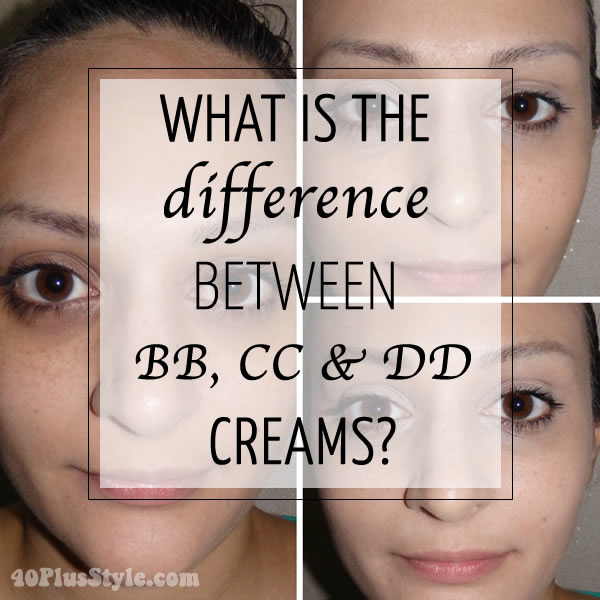So we all know what BB Creams are, but what are CC and DD Creams?
Are they all the same? Do I need all three?
Let’s find out!
BB Creams
Revisiting BB Creams, short for “Blemish Balm” or “Beauty Balm”, these creams contain a mixture of moisturiser, foundation, sunblock and primer. They have the ability to make your skin appear smoother, even out your skin tone, improve the look of your skin and prevent your skin from ageing.
For women over 40, who are blessed with good skin or those who loathe makeup or heavy foundations, BB Creams are for you. The most concerning thing about BB Creams is whether it has an adequate amount of sun protection. Make sure you check when purchasing your BB Cream.
CC Creams
CC Cream is short for “Colour Correcting”. This type of cream addresses issues like redness and sallowness.
There is a subtle difference between a BB and a CC cream and it pays to be diligent in checking the ingredients and benefits to suit your needs. Most women feel that a BB Cream is more like a tinted foundation, creamy and moisturising. A CC Cream feels lightweight and fast absorbing.
Advanced formulations within CC Creams will contain pharmaceuticals for anti-ageing or pigmentations to provide a longer-term result.
For women over 40, who encounter redness, discolouration, pigmentation or scarring, CC creams are perfect. They include advanced formulations like light diffusing particles to instantly correct skin tone, as well as plenty of antioxidants. Make sure you check when purchasing your CC Cream that the ingredients suit your purpose, as well as its sun protection.
DD Creams
DD Cream stands for “Dynamic Do-All” or “Daily Defense” Cream. DD Creams have the same texture as a BB Cream but offer more SPF protection as well as a barrier to prevent moisture loss. It also includes the Colour Correcting particles from the CC Cream.
DD Creams are most suitable for mature women. They provide a medium coverage with a lightweight feel as well as giving you all your skincare needs. 2 creams I recommend are DERMADOCTOR’s DD Cream which has an SPF30 or JULEP DD Cream with an SPF25.
At the moment DD Creams are still new and most companies have yet to release their creams, but stay tuned.
Some brands are even going an extra step to create ranges which allow the customer to customise their needs. For example, Make Up For Ever’s Step 1 Skin Equaliser System provides 10 formulas to combat every texture and tone that is of concern. With customisation come multiple tubes of products, a bulky makeup bag and longer routine though. This may suit some women but definitely not all.
What do you think?
CC Cream – Corrects the model’s skin tone and makes her look brighter or fairer.
BB Cream – Gives a nice warmth to the model’s skin tone.
Model’s Choice: Prefers the BB Cream feel and look but neither cover the pigmentation or dark circles well enough.
So my only advice when purchasing any skincare or makeup product is to ask yourself “What does my skin need?” and “What do I need from this product?” Take your time and look around and I’m sure you will find a product that’s perfect for you and your skin!
Have you experimented with any BB, CC or DD creams? What is your preference?

Want to get more articles from 40+style in your inbox, subscribe here.
You can also connect with 40+style on Facebook, Instagram or Pinterest.
Support 40+style by using the links in our articles to shop. As an associate for Amazon and many other brands, we receive a small commission (at no cost to you) on qualifying purchases which enables us to keep creating amazing free content for you. Thanks!




I am 62 yoa and have only recently began using a cream on my face. This was informative, I actually thought you were discussing bra sizes when I first read the article. I hate using SPF creams because they get into my eyes and burn when I go swimming. Can you recommend a brand that would not burn? Even the ones for children bother me to some extent, although they are preferable to most brands.
Hi Karen,
Without asking you a 100 questions about the products you have tried and the amount of pain your incur, this is what i can tell you about SPF Creams.
A sunscreen with a physical blocker (like zinc oxide) tends to be less irritating to the skin than chemical blockers. Different people have different reactions, and even a physical blocker can cause irritation.
I tend to find in the chemical blockers that UVA, avobenzone, can cause an irritation. Also, sunscreens labelled as “Water-proof”, have been known to cause reactions. Physical blockers are generally labeled “hypo-allergic” or “natural”. These will give you the same Sun Protection but with softer chemicals. Generally, if one has problems with both chemical and physical blockers, it is advisable to use SPF designed for Babies & Infants.
I am not sure if the Child SPF you tried is for Babies and a Physical blocker. But these are a few products I would try out:
California Baby Water Resistant, Hypo-Allergenic Sunscreen, SPF 30+
SkinCeuticals Sport UV Defense SPF 45
Blue Lizard Australian Suncream, SPF 30 for Sensitive Skin
Kiss My Face Non-Chemical Sunscreen Lotion, SPF 18
Jason Natural Cosmetics Earth’s Best Organic Sunblock, Chemical-Free SPF 30
Korres Watermelon Sunscreen Face Cream, SPF 30
Another tip: I would suggest picking a SPF with more moisturizer, so it soaks into the skin well.
If you are playing sport where you will sweat, wearing a headband will prevent any SPF slipping from your forehead.
Hope that gives you a starting point to finding an SPF suitable for you.
Thank you Kellie,
I did forget about zinc oxide which I can and do wear on occasion. Covers well, but looks clownish so I do not wear it in public. I did try out the CA Baby Water Resistant 30+ at the beach in Coronado this past weekend and it worked well. Thank you again, I haven’t been wearing anything but a powder based makeup which physically blocked sunlight so this will be an improvement.
Now to find out what kind of eye makeup I might be able to wear! My face and eyes are sensitive to so many things. I wear very little except for hyper allergenic creams, am trying to expand a makeup regime.
Well, learned a lot here. As I know nothing about these creams. I am notoriously bad with these things.
I don’t trust the stated SPF in make-up and frankly, it doesn’t take that long to do two steps. I put on my sunscreen when I get out of the shower and by the time I get around to doing make-up it is already well absorbed. This way, I can make sure I’m getting a high quality sun block.
For someone who doesn’t mind two steps, what would you recommend for step #2? I don’t need much coverage, and have skipped foundation most of my life. For years, I used a brush-on mineral foundation, but now that I’m almost 50 I feel the need for something else, but dislike anything that feels heavy.
Hi Lisa M,
This is an understandable comment about SPF. In an ideal world, i would suggest doing what you do, applying SPF as your first layer then proceed with your makeup routine. Each lady is different.
As for what to apply on top, you have an unbelievably wide range available to you.
For lightweight foundations take a look at these:
YSL Le Teint Touche Éclat Illuminating Foundation
MAC Face & Body Foundation
L’Oreal Visiable Lift Foundation
Bobbi Brown Luminous Moisturizing Foundation
Clinique Even Better Foundation, Beyond Perfecting Foundation/Concealer or Moisture Surge CC Compact
Estee Lauder Lucidity Foundation
Revlon Age Defying Cream Foundation with DNA Advantage
My only advice is that before applying anything on top, is to make sure the SPF has completely settled into your skin. Sometimes different products mix differently with others. So waiting longer for the skin to absorb the base layer helps.
Thank you!